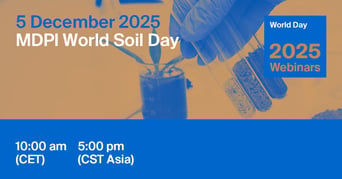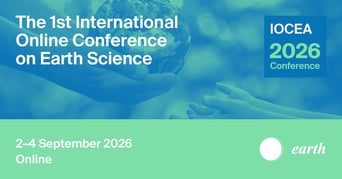- 1.9Impact Factor
- 3.0CiteScore
- 23 daysTime to First Decision
News & Conferences
Latest News & Announcements
Latest Conferences
Propose a Conference Collaboration
Promote and publicise your upcoming conference with MDPI.
All News & Conferences
News & Announcements
Acknowledgment to the Reviewers of Ecologies in 2025
9 February 2026
News & Announcements
MDPI INSIGHTS: The CEO's Letter #31 - MDPI 30 Years, 500 Journals, UK Summit, Z-Forum Conference, APE
2 February 2026
News & Announcements
Recruiting Early Career Editorial Board Members for Ecologies
23 January 2026
News & Announcements
Meet Us at the Ocean Sciences Meeting 2026, 22–27 Febuary 2026, Glasgow, UK
23 January 2026
News & Announcements
MDPI’s Newly Launched Journals in December 2025
9 January 2026
News & Announcements
Article Layout and Template Revised for Future Volumes
11 December 2025
News & Announcements
World Soil Day—“Healthy Soils for Healthy Cities”, 5 December 2025
5 December 2025
5 - 5 December 2025
News & Announcements
MDPI Webinar | World Soil Day, 5 December 2025
28 November 2025
MDPI Conference
Meet Us Virtually at the 1st International Online Conference on Earth Science, 2–4 September 2026
2 - 4 September 2026
News & Announcements
MDPI Launches the Michele Parrinello Award for Pioneering Contributions in Computational Physical Science
6 November 2025
of 12










